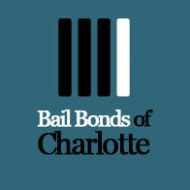Just like all other states in America, North Carolina has its own bond policies that applicants must follow in order for their release request to be successful. Generally, the bail sum a defendant gets can only be handed over after they have been arraigned before a court of law, where they must prove not-guilty for the charges placed against them.
How Do Bail Bonds Work in North Carolina?
Thereafter, a bail bondsman can pay the bond after a 15% premium has been remitted by the respondent or their co-signor. If for any reason the respondent doesn’t show up in court, then the co-signer would be fully responsible to the bond provider. Below are other points to note on how bail bonds work in North Carolina?
Bond Qualification
According to North Carolina laws, most persons have a right to apply for bond pending the official hearing of their case. However, the judge still holds discretion as to whether you should receive this bail or not, depending on severity and complexity of the case. For instance, if your release poses a direct threat to society or there’s likelihood that you might flee or go into hiding, then the judge may decide to deny you bail.
Moreover, those charged with capital crimes are less likely to be released due to the grave nature of these offenses. Such crimes carry the death penalty and include cases such as murder, or espionage that poses a huge security risk to the country.
Hiring a Bail Intermediary
If you or a loved one has been jailed in North Carolina for whichever reason, it’s important to seek the services of a bondsman who’ll be able to find the money and complete other legal processes needed to post your release.
As the defendant, it’s common practice to pay a minimum of 10% of your bail sum to the bondsperson. However, some of them have flexible payment plans where you can make a small down payment at first, followed by regular weekly or monthly reimbursements as the case gradually progresses to the stage of attending court hearings and other legal proceedings while free.
Additionally, there are certain crucial information you must provide the bondsman so that they can have an easier time processing your bail release, these include your full ID name, birth date, date of arrest, the amount of bail you require and the kind of crime one has been accused of. You also need to tell the bailer which type of bond you are most comfortable working with, since there are various options to choose from such as; surety bonds, monetary bonds and property bonds among others.
Nevertheless, in most cases defendants choose to pay part of their bond through cash, check or credit card, after which the bondsman will pay the remaining amount needed to release you from temporary custody.
Time Limits
Most North Carolina courts have a specific time frame in which defendants are allowed to post bond, failure to provide bail money or meet other legal obligations during this period means that your bond application will be denied. Therefore, it’s important to check with the bond provider whether they can be able to secure your bail in a timely manner, lest it be rejected by the courts due to late application.
Bottom Line
So, how do bail bonds work in North Carolina? North Carolina has specific policies that defendants must follow if they want to post bond and be freed from jail. For instance, it’s required to contact and hire a bondsperson to work on your behalf, and also meet the time deadlines set by the court to apply for bail.


